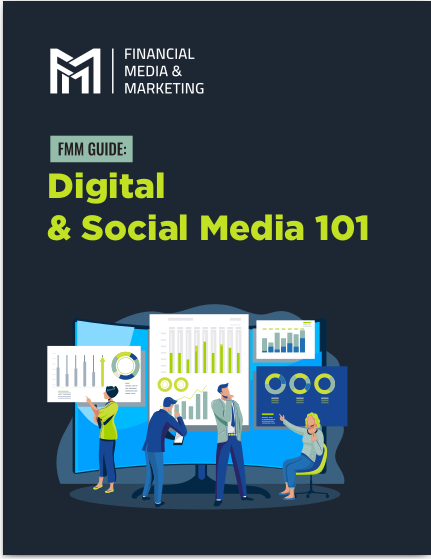Online Advertising Strategies for Insurance Agents
Key Takeaways:
- Online advertising offers insurance agents a wide reach, advanced targeting capabilities, and cost-effectiveness compared to traditional methods, enabling them to connect with potential clients effectively.
- To create successful online advertising campaigns, agents should define their target audience, choose the right platforms, craft compelling ad copy with strong CTAs, optimize landing pages, measure success metrics, and adhere to ethical advertising practices and regulatory compliance.
In the digital age, online advertising has become a vital component of marketing for insurance agents. Leveraging the power of online platforms and targeting capabilities can help insurance agents connect with their target audience more effectively. In this article, we’ll explore effective online advertising strategies tailored to insurance agents, helping them reach potential clients and grow their business.
The Significance of Online Advertising in Insurance
1. Reach a Wide Audience
Online advertising allows insurance agents to reach a broad audience, including individuals actively searching for insurance solutions.
2. Targeted Marketing
Digital advertising platforms offer advanced targeting options, enabling agents to focus their efforts on specific demographics, locations, and interests.
3. Cost-Effective
Compared to traditional advertising methods, online advertising can be more cost-effective, allowing agents to optimize their budget.
Strategies for Effective Online Advertising
1. Define Your Audience
Client Personas
Create detailed client personas to understand the characteristics and needs of your ideal clients. This information will guide your advertising efforts.
2. Choose the Right Platforms
Google Ads
Consider using Google Ads to target users actively searching for insurance-related keywords. Use relevant ad extensions to provide additional information.
Social Media Advertising
Platforms like Facebook, LinkedIn, and Instagram offer targeted advertising options. Choose the platforms that align with your target audience.
3. Compelling Ad Copy
Clear Messaging
Craft clear and concise ad copy that communicates the value of your insurance services. Highlight what sets you apart from competitors.
Call to Action (CTA)
Include a strong CTA that encourages users to take action, whether it’s requesting a quote, scheduling a call, or signing up for a newsletter.
4. Landing Pages
Customized Landing Pages
Create dedicated landing pages for your online ads. Ensure that the landing page content aligns with the ad’s message and provides valuable information.
Conversion Optimization
Optimize your landing pages for conversions. This includes clear forms, minimal distractions, and easy navigation.
5. Remarketing Campaigns
Retargeting Ads
Implement retargeting campaigns to reach users who have previously visited your website but didn’t convert. Remind them of your services.
6. Video Advertising
Explainer Videos
Create short, informative videos that explain insurance concepts or highlight the benefits of your services. Video ads can be engaging and memorable.
7. Mobile Optimization
Mobile-Friendly Ads
Ensure that your ads and landing pages are mobile-friendly. Many users access the internet and make inquiries from mobile devices.
8. Ad Budget Management
Budget Allocation
Distribute your ad budget strategically among different campaigns and platforms. Monitor performance and adjust allocations accordingly.
9. Test and Iterate
A/B Testing
Regularly conduct A/B tests on ad copy, visuals, and landing pages. Analyze the results to refine your advertising strategy.
10. Compliance and Ethics
Regulatory Compliance
Ensure that your online advertising practices comply with industry regulations and ethical standards. Provide accurate and transparent information.
Measuring Online Advertising Success
1. Click-Through Rate (CTR)
Track the CTR to understand how many users click on your ads. A higher CTR indicates that your ad resonates with your target audience.
2. Conversion Rate
Measure the conversion rate to assess how effectively your ads lead to desired actions, such as quote requests or contact form submissions.
3. Return on Investment (ROI)
Calculate the ROI of your online advertising efforts by comparing the revenue generated to the cost of advertising.
4. Ad Performance Metrics
Analyze ad performance metrics such as ad impressions, ad position, and quality score to optimize your campaigns.
Ethical Considerations and Best Practices
1. Data Privacy
Handle user data with care and in compliance with data privacy regulations. Clearly communicate your data usage policies.
2. Honest Advertising
Ensure that your advertising is honest and transparent. Avoid misleading claims or false promises.
3. Customer Support
Provide prompt and helpful customer support to those who inquire through your ads. A positive experience can lead to conversions.
Conclusion
Online advertising is a powerful tool for insurance agents looking to connect with potential clients and grow their business. By defining your target audience, choosing the right platforms, crafting compelling ad copy, and optimizing landing pages, you can create effective online advertising campaigns. Regularly measure and refine your strategies to maximize your advertising ROI. Ethical advertising practices and compliance with industry regulations are essential to maintain trust and credibility with your audience. Embracing online advertising can help insurance agents thrive in the digital age and reach a wider audience in need of their services.
Contact Information:
Email: [email protected]
Phone: 8777993433
Bio:
Stan Collins is a Marketing Specialist based in Arizona that focuses primarily on online branding and digital marketing. In addition to helping financial professionals, real estate agents, and other business professionals generate leads and perfect their online identities, Stan Collins also writes educational content about marketing.










